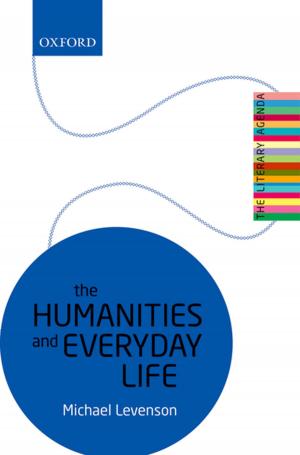The Role of National Courts in Applying International Humanitarian Law
Nonfiction, Reference & Language, Law, Comparative, International| Author: | Sharon Weill | ISBN: | 9780191508622 |
| Publisher: | OUP Oxford | Publication: | March 6, 2014 |
| Imprint: | OUP Oxford | Language: | English |
| Author: | Sharon Weill |
| ISBN: | 9780191508622 |
| Publisher: | OUP Oxford |
| Publication: | March 6, 2014 |
| Imprint: | OUP Oxford |
| Language: | English |
International law is increasingly applied in domestic courts. This can result in situations where the courts are being asked to rule on politically sensitive issues, especially issues which involve actions during armed conflicts. Domestic courts do not show a uniformity of approach in addressing cases concerning international humanitarian law, and can often be seen to differ markedly in their response. The book argues that different national courts demonstrate different functional roles in different countries. These can be situated on a scale from apology to utopia, which can be set out as follows: (1) the apologist role of courts, in which they serve as a legitimating agency of the state's actions; (2) the avoiding role of courts, in which they, for policy considerations, avoid exercising jurisdiction over a case; (3) The deferral role of courts, in which courts defer back to the other branches of the government the responsibility of finding an appropriate remedy (4) the normative application role of courts, in which they apply international humanitarian law as required by the rule of law; and (5) the utopian role of courts, in which they introduce moral judgments in favour of the protection of the individual, beyond the requirements of the law. The book investigates the rulings of five key domestic courts, those of the UK, the USA, Canada, Italy, and Israel, to understand how their approaches differ, and where their practice can be placed on the methological scale. This analysis has been assisted by the author's extensive field work, notably in Israel and in the Occupied Palestinian Territories. Providing a detailed understanding each court's function, the book offers a critical analysis of the courts' rulings, in which both the legal arguments and the political context of cases they have ruled on are examined. The book shows that the functional role of the national courts is a combination of contradictions and mixed attitudes, and that national courts are in the process of defining their own role as enforcing organs of international humanitarian law.
International law is increasingly applied in domestic courts. This can result in situations where the courts are being asked to rule on politically sensitive issues, especially issues which involve actions during armed conflicts. Domestic courts do not show a uniformity of approach in addressing cases concerning international humanitarian law, and can often be seen to differ markedly in their response. The book argues that different national courts demonstrate different functional roles in different countries. These can be situated on a scale from apology to utopia, which can be set out as follows: (1) the apologist role of courts, in which they serve as a legitimating agency of the state's actions; (2) the avoiding role of courts, in which they, for policy considerations, avoid exercising jurisdiction over a case; (3) The deferral role of courts, in which courts defer back to the other branches of the government the responsibility of finding an appropriate remedy (4) the normative application role of courts, in which they apply international humanitarian law as required by the rule of law; and (5) the utopian role of courts, in which they introduce moral judgments in favour of the protection of the individual, beyond the requirements of the law. The book investigates the rulings of five key domestic courts, those of the UK, the USA, Canada, Italy, and Israel, to understand how their approaches differ, and where their practice can be placed on the methological scale. This analysis has been assisted by the author's extensive field work, notably in Israel and in the Occupied Palestinian Territories. Providing a detailed understanding each court's function, the book offers a critical analysis of the courts' rulings, in which both the legal arguments and the political context of cases they have ruled on are examined. The book shows that the functional role of the national courts is a combination of contradictions and mixed attitudes, and that national courts are in the process of defining their own role as enforcing organs of international humanitarian law.















